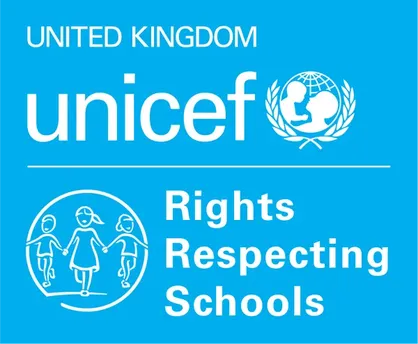All members of this school community feel treated with dignity and respect.
Caroline Freedman, RRSA lead at Martin Primary School, explains how this school’s work on dignity has created a tangibly safe and calm environment for children.
Applying the concept of dignity for all
Restorative justice is used across the school when dealing with conflicts, particularly at playtime. When dealing with conflict all staff ask questions such as how were you feeling, who has been affected or hurt, how do you think they are feeling and what can you do to make both or all of you happy?
This has really helped children be involved in what happens, have their story heard and reflect on their actions. It also means there are clear expectations on both sides as to how behaviour will be dealt with as all staff have had training on this approach. This links to Article 28 which states that discipline in schools must respect the child’s dignity.
In January 2023, a local hotel was allocated as accommodation for refugees who had recently arrived in the country. Nine children from the hotel were admitted to the school and they and their families were welcomed to the school community. They were provided with uniforms and bags by the school and with clothes, toiletries, books and toys donated by the other children and their families. None of the children spoke English and many had experienced severe trauma.
They were supported by our staff and our children who were provided with some information about life as a refugee. The school also worked with the hotel to ensure that the families were provided with appropriate food and by the local authority to ensure that the families were able to access essential services.
Supporting children and staff to understand dignity
One of the ways we support pupils and staff to understand the meaning and importance of treating every individual with dignity is through the curriculum. Units were introduced to reflect the diverse school community and to reflect the local area. These include units on Walter Tull in year 2, Dido Belle and her life at Kenwood House in year 5 and Trade in year 6. Year 6 also focus on the evolution of children’s rights over the last two centuries.
Our choice of texts studied in English also reflects the importance we place on dignity. These include ‘The Great Foodbank Heist’ by Onjali Q. Rauf, where the children not only read the book but visited a local foodbank to understand the role we all play in promoting dignity and how the foodbank contributes to this.
We have introduced Questions of the Month, which has explored manners and how we speak to each other. This has made everyone aware of the importance of treating each other with dignity and that dignity, respect and manners are all important in creating a Rights Respecting School.
Creating the right environment
All members of our school community feel they are treated with dignity, walking in to our school the feeling of dignity and respect is almost tangible. It’s there from the way you are greeted as soon as you walk around the school to seeing the way staff and pupils interact.
The main piece of advice I would give other schools is to make everything explicit. With our restorative approach there was training for staff, parents and pupils on how it worked. Children who take on the role of ‘Playground Friends’ have training on the restorative approach before they start and new members of the school are told about it at their induction. Questions of the Month are put up in every classroom and at the top of the weekly newsletter. Assemblies focus on what the question means and our Rights Respecting certificates go to a member of the class who has shown they can ‘answer’ the question.
School context: Martin Primary School is a three-form entry school and nursery with 676 pupils on roll. 30% of learners are supported by Pupil Premium funding and 64% speak English as an additional language.



